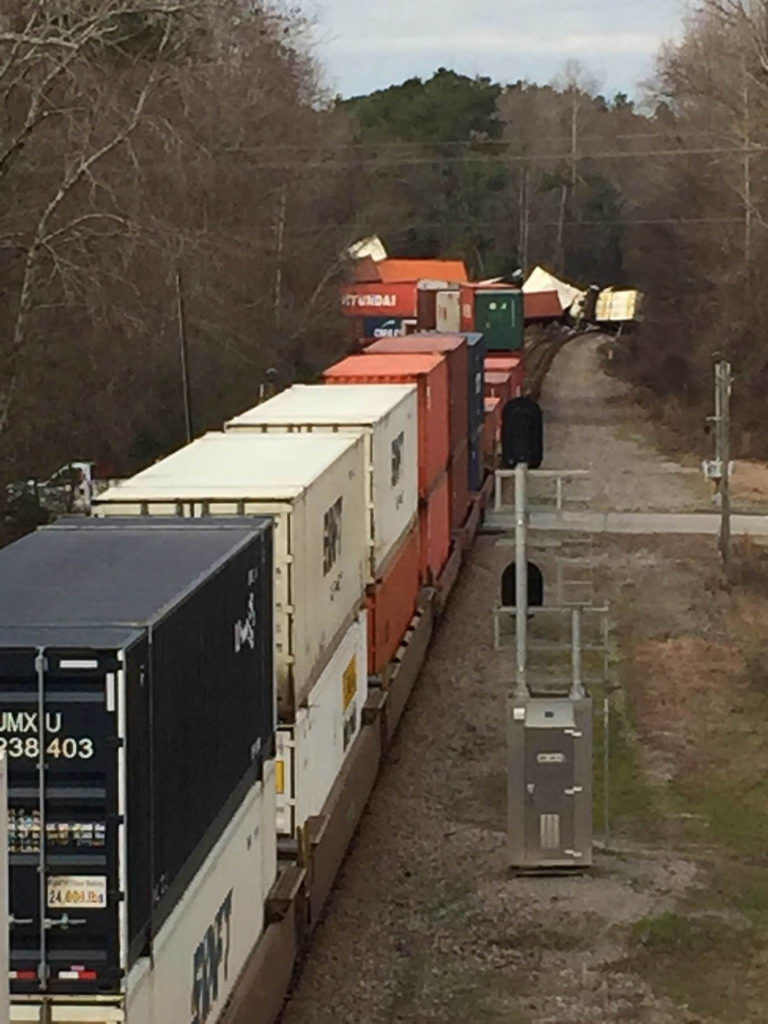CSX Train Derailment and Chemical Spill in Allendale, SC Latest in a Long String of Incidents Highlighting Lax Industry Regulations
By: Waterkeeper Alliance

Savannah Riverkeeper on the ground calling for public transparency and cleanup
January 28, 2015 — Yesterday’s chemical spill which resulted from a CSX train derailment in Allendale, South Carolina, is the latest in a long string of incidents where hazardous chemicals have ended up in local waterways due to lax industry standards and regulations.
It has been confirmed by CSX that Hydrochloric acid and diesel were the substances spilled. The latest derailment is reminiscent of the Graniteville, South Carolina train crash tragedy in 2005, when a train collision due to an improperly lined railroad switch, caused the release of toxic chlorine gas, among other chemicals, into the environment.
“The latest spill is a case of history repeating itself in South Carolina,” said Tonya Bonitatibus, Savannah Riverkeeper. “Once again, government is not disclosing vital information to the public and questions are going unanswered. We have yet to receive any information regarding how much was spilled or if they are cleaning it up. These are questions we need immediate answers to.”
Waterkeeper Alliance organizations all over the country have been responding to CSX train derailments over the past five years. Many of the derailments involved chemical spills into nearby waterways. A McClatchy analysis of federal data from the Pipeline and Hazardous Materials Safety Administration showed that more oil was spilled from rail cars in 2013 than in the prior 40 years combined.
Most recently, Hurricane Creekkeeper John Wathen responded to the Aliceville, Alabama train derailment that resulted in 450,000 gallons of crude oil being released into a nearby wetland and Waterkeeper Alliance and Upper James Riverkeeper Pat Calvert were on the ground for the Bakken Crude Oil train derailment and fire that caused the evacuation of downtown Lynchburg, Virginia, spilling an estimated 50,000 gallons of oil into the James River.
Other incidents that Waterkeeper organizations have responded to include: a coal train derailment en route to Columbia River gorge, spilling coal from 31 cars; a derailment near a trestle on the Jerome Bridge in McKeesport, Pennsylvania where three cars carrying volatile light crude oil dangled over the Youghiogheny River; and a freight train derailment in Paulsboro, New Jersey causing toxic vinyl chloride to be spilled into Mantua Creek.
“What all of this highlights is a very significant, daily threat to our waterways and communities,” said Donna Lisenby, Clean & Safe Energy Campaign Manager at Waterkeeper Alliance. “Through our rapid response program, and our Waterkeeper organizations on the ground across the country, we’ve seen these disasters up close and personal and the lack of industry regulations only ensures that we will be seeing many more in the future. These trains run right through towns and cities, and people are completely in the dark about the dangers posed by an accident such as a derailment. It is unacceptable that local governments and the public are not given any meaningful information on the type, quantity, and frequency of hazardous transport on their railroads.”
Contacts:
Tina Posterli, News Media Specialist, Waterkeeper Alliance, 516-526-9371, [email protected]
Tonya Bonitatibus, Savannah Riverkeeper, 706-755-4839, [email protected]